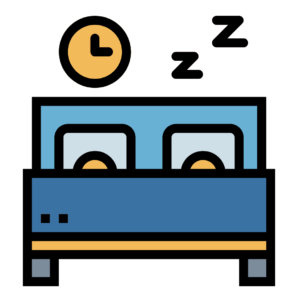
At least 1 in 3 people will suffer from insomnia during their lifetime.
Our 24/7 culture can mean it’s harder to get a good night’s sleep and poor sleep has been linked to poor physical and mental health. This means that educating patients about ‘normal sleep’ is more important than ever before.
By changing our understanding, behaviours and approach to sleep, practitioners can help manage patient expectations and reduce sleep-related anxiety.
Our Pharmacy team, working with the Regional Sleep Disorders service and consultant psychiatrists, have created Smarter Sleep resources which aim to help both patients and practitioners in taking positive steps towards better sleep without the use of hypnotics. Often there is an over-reliance on the use of hypnotics to treat insomnia. These medications have several side effects. A careful assessment of sleep can detect secondary causes of poor sleep which require different treatment.
It is possible to improve rest without the need for medication, as well as reducing drug spend, risk of side effects and improving treatment outcomes.
The Smarter Sleep resources include a video, patient and staff poster, a sleep diary to record sleeping patterns and a handbook.
The resources are linked to the Positive and Safe Care’s SleepWell project, which aims to improve sleep management across the Trust by adopting a more flexible approach to night time observations. This was done by identifying and managing sleep disorders, improving sleep health including making environmental changes and making psychological therapies more available.
The Smarter Sleep initiative, led by Alastair Paterson, was piloted on inpatient wards. This has been well received by staff and was associated with a reduction in hypnotic prescribing and administration.
• Recording your sleep using a sleep diary
• Simple lifestyle interventions, for example exercising during the day and screen-free wind-down period before bed
• Creating the right environment for sleep – a calm, cool room with minimal disruptions
• Reduce caffeine and nicotine intake
• Reducing alcohol consumption
• Having a pharmacist medication review – some prescribed medicines can make you sleepy during the day, or find it hard to sleep at night
• Natural light exposure – try to spend time outside in natural light every day
• Setting a regular wake up time, and going to bed when you feel sleepy
The Smarter Sleep Resources are available here.
